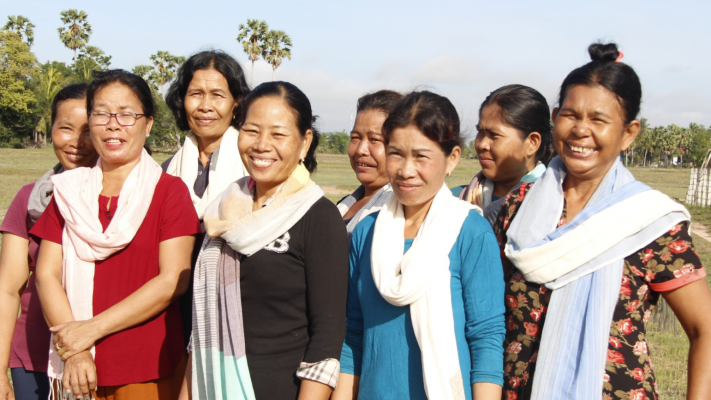At Sonas, we like to talk about people with entrepreneurial talent and their relentless passion to create sustainable and positive. We admire them and are inspired by their resilience and never-give-up attitude. In fact, when we came to Cambodia we realized that these change makers were everywhere. Just have a look at our home page and you will see a few. Since we arrived in Cambodia, we have been building our honey badger tribe, which you too can become a part of. Our community not only includes the entrepreneurs we work with but the people who have supported these projects such as local social workers, teachers and other Sonas supporters who have to lend money or invest their time and energy.
Through our work, we intend to inspire and enable people to achieve personal empowerment and take their first steps out of poverty, not through hand-outs or short-term solutions, but by instilling belief and helping to achieve a sustainable and long-term solution. This can be difficult for some to envision, which is why we work with the entrepreneurs who have the desire to improve the livelihoods for themselves and their families and in doing so they inspire their neighbors, children, brothers, cousins and whoever else they know. This is what we call the multiplier effect!! Their success inspires others to set up their own small business, learn new skills and become financially independent.
We have come across many of these people with this attitude, full of passion and a desire to make a difference in their lives and the lives of others. We call them the “HOney Badgers”. These women and men are exactly like us, except all they lack are the resources and some self-belief. We do our best to fill this missing link by staying on the ground and supporting the honey badgers with the right resources (money, training, market reach), which ultimately means connecting you to them!
The multiplier effect doesn’t just happen in Cambodia, but it has been happening all over the world. Our supporters, lenders, partners, and friends are also honey badgers. Even from the other side of the world, they are investing their time, supporting the entrepreneurs and simply becoming involved in helping to achieve our mission. These honey badgers are supporting honey badgers in Cambodia and in doing so are creating a ripple effect around the world! Some of our honey badger tribe includes Samantha Morshed of Pebble Child, Oxford Microfinance Initiative and Brown Coffee and Claudia Harvey of Dig It
As a grassroots organization, living and working in rural communities, we can see that there is no shortage of honey badgers who are motivated and willing to work hard to improve their livelihood. We believe that if we can find more of these honey badgers, then we can create a greater impact on the ground. However, we would love to find more honey badgers around the world who can support us with their skills, time or other resources. Please get in touch with us and let us know how you could contribute…we’d love you to become a part of the honey badger tribe!!
How can we measure our social impact?
One of the biggest challenges social businesses face today is the measurement of their social impact. For some social organizations, it can be too complex, too expensive and too time-consuming, however, there is an increasing need for ‘social return’ by civil organizations especially as they prove to meet their core mission and objectives.
As social impact is the core of our work at Sonas, we believe social impact measurement is essential. For this reason, we have partnered with the University of Oxford’s ‘Oxford Microfinance Initiative’ who have consulted us in the most appropriate way to measure our social impact. A team of 12 research consultants has been working with us since October 2013 to develop our social impact measurement tools.

Social impact measurement not only allows us to improve our effectiveness as an organization and be held accountable for our performance, but it also opens up new learnings about the social issues the entrepreneurs continue to face such as education of the family. It also helps us assess other risks in the local community such as human trafficking, female empowerment and how they can affect the well being and economic development of a family and community
In March 2014, the Oxford team came to work in the field with the Sonas team in order to apply and test the methods and research they have been developing. We soon realized that social impact measurement can be quite good fun! We and even the entrepreneurs enjoyed participating in the activities, which were a lot more engaging than long questionnaires or surveys. We carried out different games and activities such as the ‘Pile of rice’ method and ‘Mark the spectrum line’. We used this activity for qualitative measurement of the entrepreneur’s happiness and well-being.
Now that we have these measurement tools in place, we can continue to measure and monitor the impact and results from our work.

